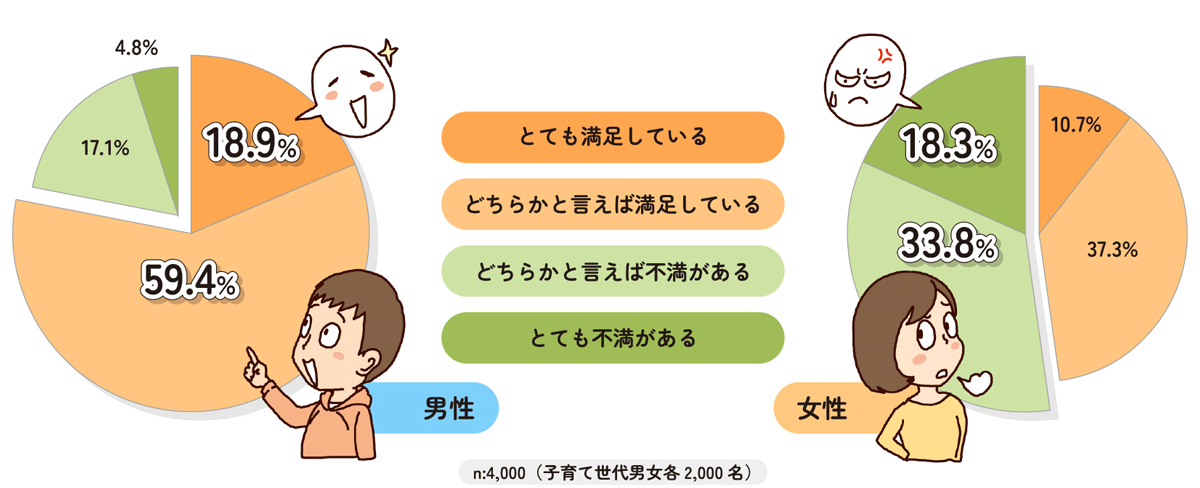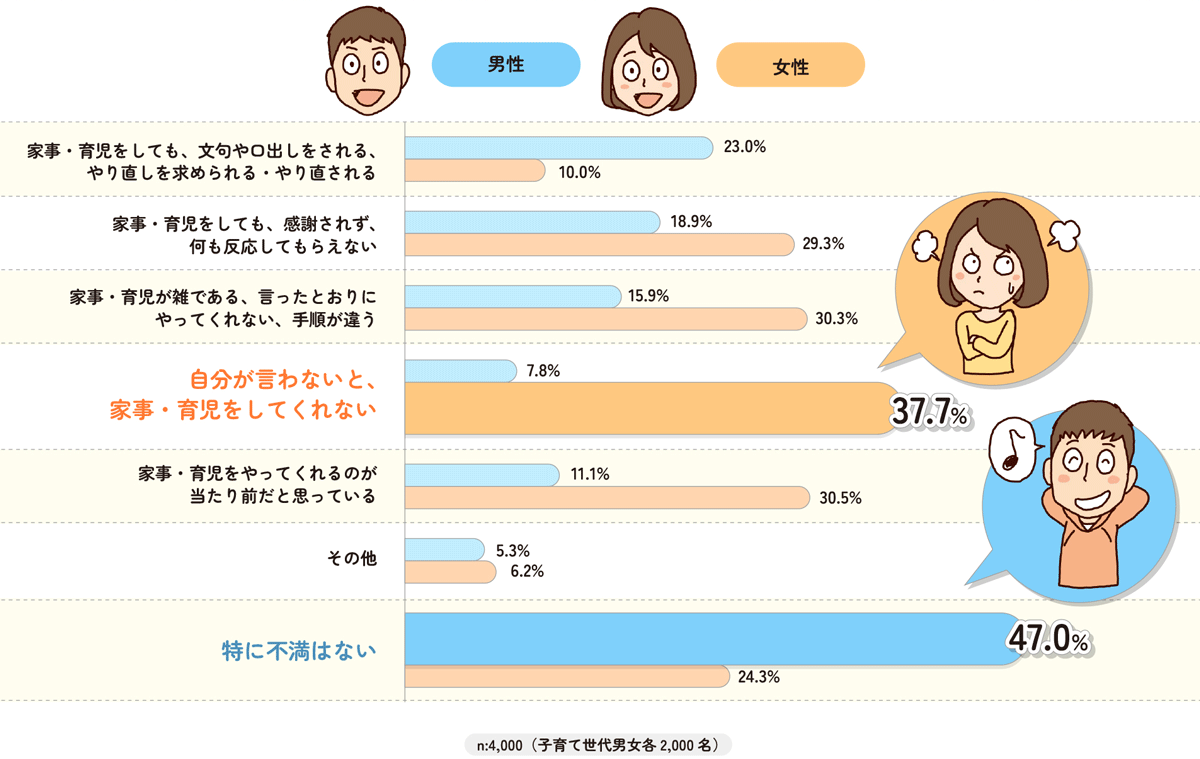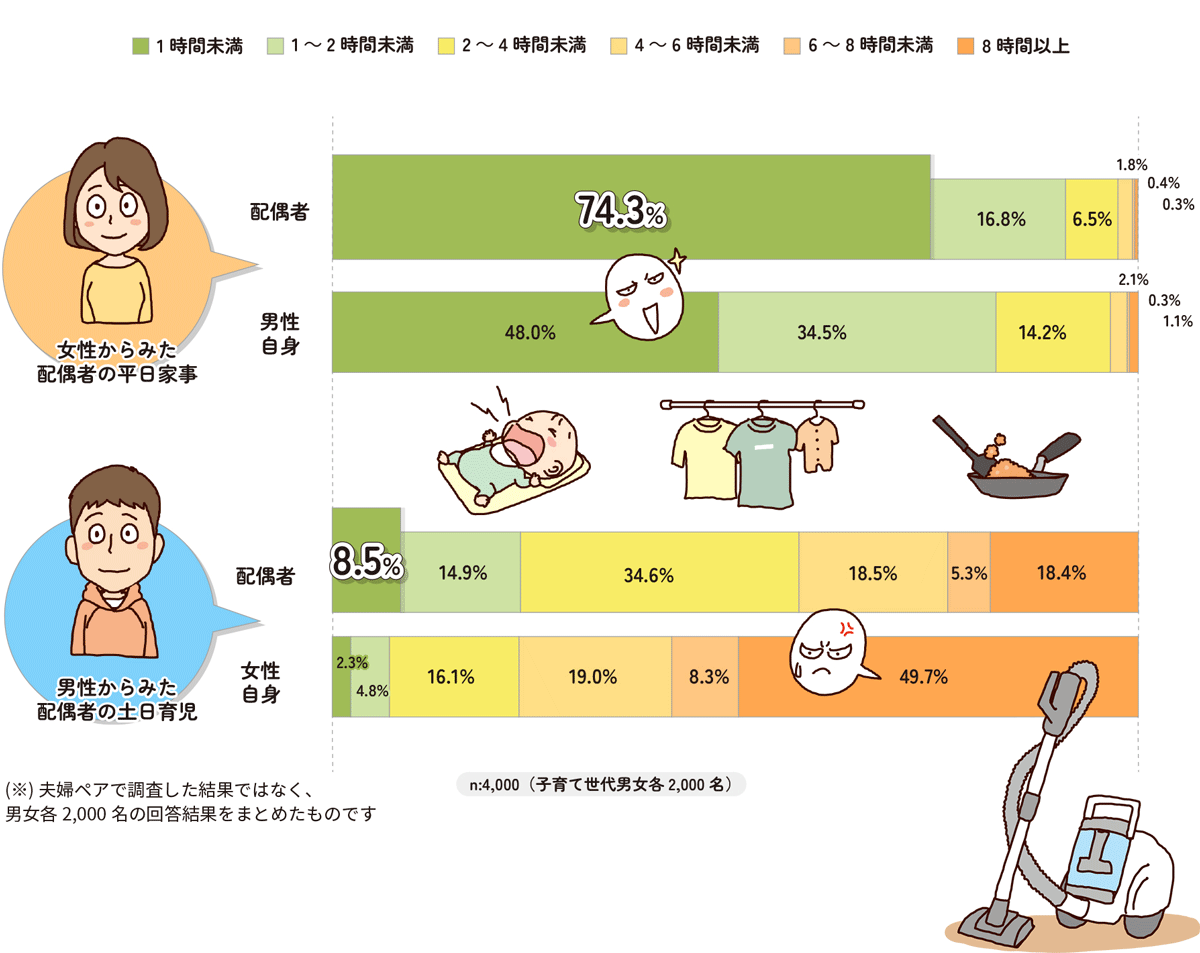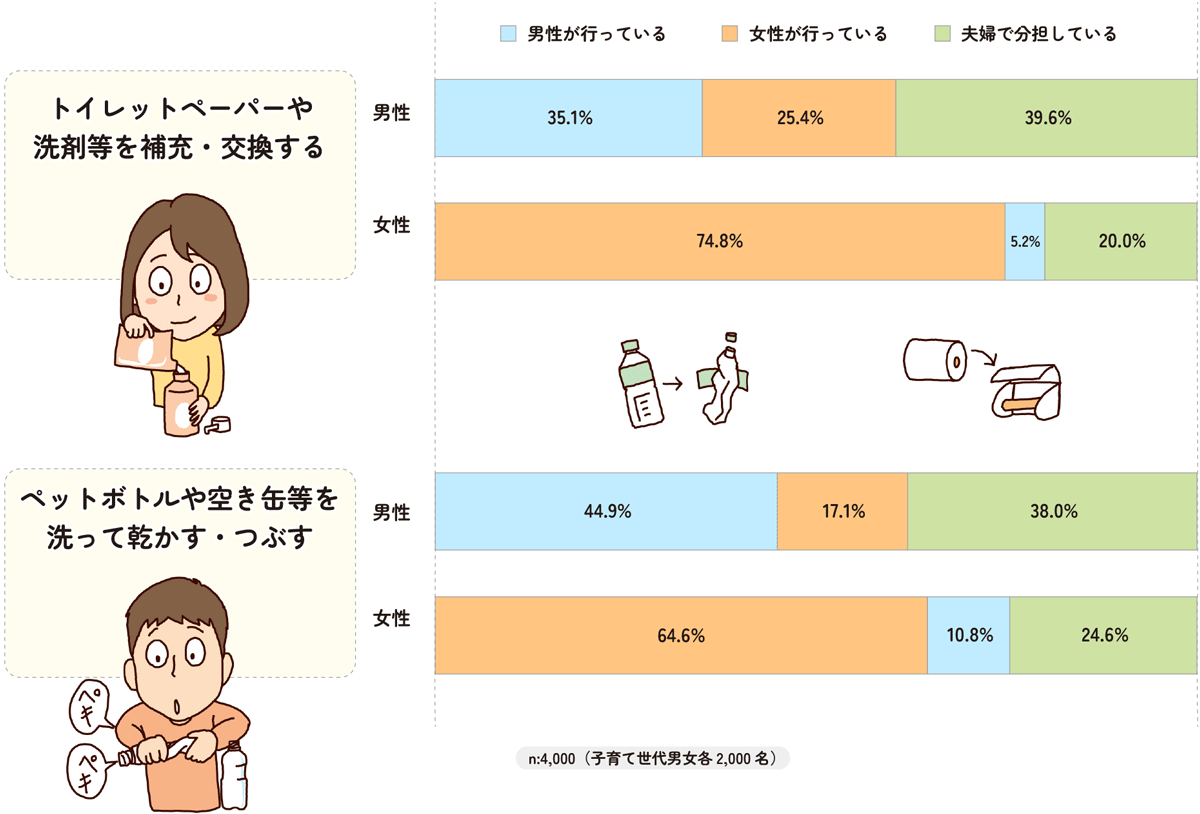
The Tokyo Metropolitan Government conducted a survey of 5,000 men and women living in Tokyo regarding housework and childcare.
With the cooperation of experts, we have unraveled the differences in awareness and true feelings between men and women regarding housework and childcare, as well as the reality of childcare. We will send you this report in three parts, along with a few words of advice that you can use starting today!
The first issue will focus on the division of housework and childcare duties and the honest opinions of fathers and mothers.
- Part 2: “Male childcare” and “going home on time” should be the norm in our society! is here.
- Click here for “Part 3: Keys to Increasing Marital Satisfaction
\” Must-see for moms and dads.
A word of expert advice you can use today

Tsuneko Takaso
Child Care Advisor, Career Consultant
Director, NPO Fathering Japan
Mother of 3 children
Emotionless Parenting” (Kanki Shuppan)

Shintaro Yamaguchi
Professor, Graduate School of Economics, The University of Tokyo
Father of 1 child
The Economics of ‘Family Happiness'” (Kobunsha Shinsho),
The Economics of Child Rearing Support,” Nippon Hyoronsha, Inc.
A funny “Aru Aru” cartoon about housework and childcare

eichiic acid
illustrator
Father of 1 child
Parenting cartoon series on the Tokyo Metropolitan Government’s website “TEAM Housework & Childcare”.
Skinhead Dad’s Childcare Diary” (Nikkei BP)
Tell us! Moms’ and Dads’ honest opinions and dissatisfaction
(1) Housework and childcare sharing, satisfied fathers and bewildered mothers
Q. Are you satisfied with the division of housework and childcare between husband and wife?
While about 80% of dads said they were satisfied with the division of housework and childcare, a whopping half of moms were dissatisfied. …… What is the cause of this gap?
(2) Moms’ honest feeling is, “I want you to do it without telling me.
Q. What are your dissatisfactions with your spouse?
About half of the fathers responded that they had no particular complaints. The next most common complaint was that they “complain or say no” when they do things. On the other hand, the number one complaint of moms was that “they don’t do what I tell them to do. Even if the fathers do not have bad intentions, the situation where “it is natural for the mothers to do it” may be a source of frustration for the mothers.
- I want you to take the initiative in housework and childcare before you are told to do so.
- It’s all just help, so please be aware of the parties involved.
- He cooks the meals, but I do all the cleanup, etc. I want her to understand that cleaning up is part of the housework.
- He is cooperative when it comes to childcare, but does very little housework.
- My husband is also off work on Saturdays and Sundays, but he is not happy that the housework is left to me. I feel I deserve to have the housework done.
- They don’t notice the chores you do if you notice them at all.
- Messy ( They wash the dishes, but they leave dirt on them. They vacuum, but don’t do corners, under luggage, etc. )
- I want you to express your gratitude in words.
Keep in mind that “I want you to understand” will not get through to them. To begin with, nearly 80% of fathers are satisfied with the current situation, so it can be said that they are unaware of the difficulties and problems that moms are going through. I hope that the results of this survey will make dads aware of the difficulties and problems moms are facing. I hope that the results of this survey will make dads aware of the difficulties they are facing. Let’s encourage moms to be proactive in expressing their thoughts and feelings to their parents. It is best to say out loud what you want them to do, rather than giving up when it is not possible!

- I do my best, but I always get scolded.
- I get annoyed when people change the way I dry my laundry without saying anything.
- They only accept their own way.
- They complain that we do things differently and make us redo them. If we complain, it causes a fight, so we can’t say anything.
- Sometimes he gets in a bad mood and hits me because he has housework to do. I’d rather have them do the chores for me than have that happen to me.
- It is very difficult for men to ask me to “guess what I want you to do,” so I would like you to be specific about it.
The idea of which one is the “primary” or “secondary” parent is different to begin with, isn’t it? For example, it may be an option for the family to divide roles, for example, “I am a full-time housewife (househusband), so I do more of the housework,” but it is important for both parents to be aware that they should be the “master” of their own lives. In terms of housework, if both of you are working full time, there is no such thing as “the wife is the master and the husband is the servant. It would be nice if they could think about “what to do next” rather than asking for instructions to be given.

*Created based on feedback from moms and dads in the Fact-Finding Survey
 Avoid the “battle of wits” and use “eye messages” to convey your message.
Avoid the “battle of wits” and use “eye messages” to convey your message.When both spouses are so full of time, energy, and energy, they have little time to appreciate each other’s good points. We often hear complaints about dads who “make you feel like you’ve done a great job just by doing a little,” and moms who “point out all the things you’re not doing even though you’re trying your best. Then, “I’m having a hard time too,” or “I’m having a much harder time than you are,” and it turns into a “hardship battle. What I would like you to do in such situations is to use ” I (I) messages. Instead of “Why don’t you do it? Instead of “Why won’t you do something?”, try to communicate with the other person while respecting both yourself and the other person by putting yourself as the subject.
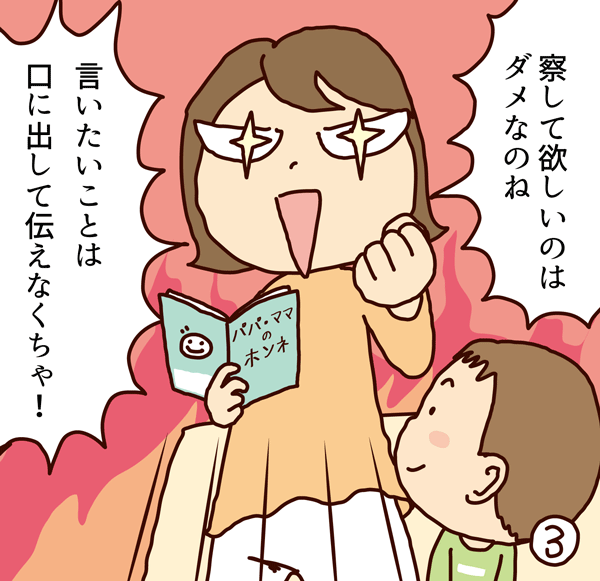



2. where is the dissatisfaction coming from? So much invisible burden!
(1) “I think I’m doing it,” but it’s just piling up and turning into a ditch! Big gap in perception between men and women
Q. How much time do you and your partner spend on housework and childcare?
When asked how much time they and their partner spend together on housework and childcare, respondents tended to estimate their own time as much and their partner’s time as little. The results revealed that the respondents do not have a firm grasp of their partner’s housework and childcare.
It is natural for us as human beings to not see well what others are doing. Even in our world as researchers, if we were to take a survey and add up everyone’s work, 100% would not be enough (laugh). and then add up everyone’s percentage, 100% doesn’t really cut it (laughs). It would be nice if we could be tolerant of each other and recognize that the other is making efforts even when they are not visible!

(2) Invisible Burden: “Unnamed Household Tasks” Hidden in Everyday Life
The “nameless chores” are the little chores that don’t have a specific name, but are essential to our lives. These “unnamed chores,” which may seem trivial at first glance, are said to lead to “burdens” and “dissatisfaction” in the home.
Taking out the trash” is a household chore without a name. If all you do is take the garbage to the collection point, it is called “taking out the garbage . If dad is in charge of taking out the trash, he collects trash from each room, sorts it, knows which day of the week is trash day, and takes it out. He should also be able to set up and replenish garbage bags!

Q. “Housework with no name”: Who does this chore most often, you or your spouse?
When asked about the specific “unnamed housework” responsibilities, many respondents felt that “I do more of it than they do! Many respondents felt that “I do more! While many fathers tended to say that they “share the household chores with their spouses,” mothers overwhelmingly said that they do the majority of the work. It may be that it is the small details that occur in daily life that are difficult for others to see, and this may be a cause of stress.
 The key is to clarify the main responsibilities. Increase the number of chores that you hand off or delegate to your partner!
The key is to clarify the main responsibilities. Increase the number of chores that you hand off or delegate to your partner!The division of responsibilities should be in a ratio that is comfortable for each household. Some families make a checklist, but it is also recommended to make a set of “responsibilities” that includes “chores without a name. The point is not to leave it to them in parts, but to make them the main responsibility and allow them to have discretion. Even if you are asked to do a part of a job, it is difficult to understand “what to be done by when and how? It’s hard to understand, isn’t it? And if you have a particular chore or something that irritates you when the other person does it, you should do it yourself (laughs). However, if you don’t increase what you leave to your partner, your own responsibilities will only increase, so it is important to reduce non-negotiable chores as much as possible. If you do put conditions on them, limit them to one or two. When I hang the laundry to dry, I say, “Pang once! and leave a space of 10 cm between each load. In fact, mothers are more particular about their chores, and there are many chores that they can’t hand over to their partners. But it’s boring if you keep pushing yourself too hard and getting frustrated. I would like you to save labor on chores so that you can leave some room for yourself, and value how you can enjoy spending time together as a family.

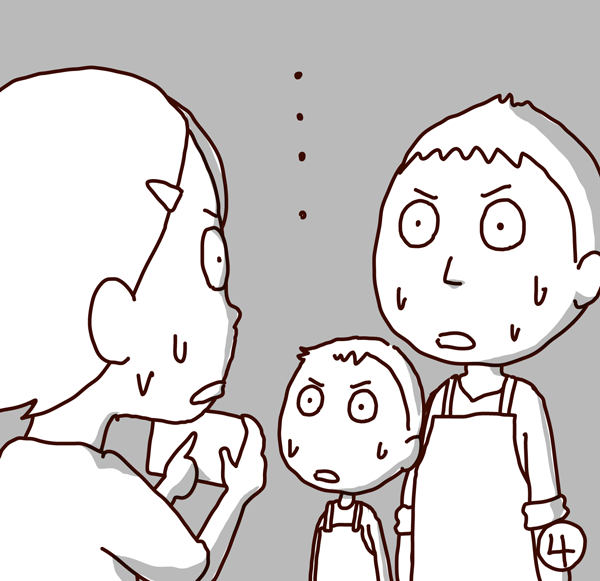


In this second issue, we present the results of our survey on male childcare and overtime work. Please take a look!
- Part 2: “Male childcare” and “going home on time” should be the norm in our society! is here.
- Click here for “Part 3: Keys to Increasing Marital Satisfaction
All survey results are available here.
Survey period: July 31-August 21, 2023
Target: 5,000 people (2,500 men and 2,500 women each) living in Tokyo Target 1 Child-rearing generation…4,000 men and women with preschool children (2,000 men and 2,000 women each) Target 2 All generations…1,000 men and women aged 18 to 69 (500 men and 500 women each)


